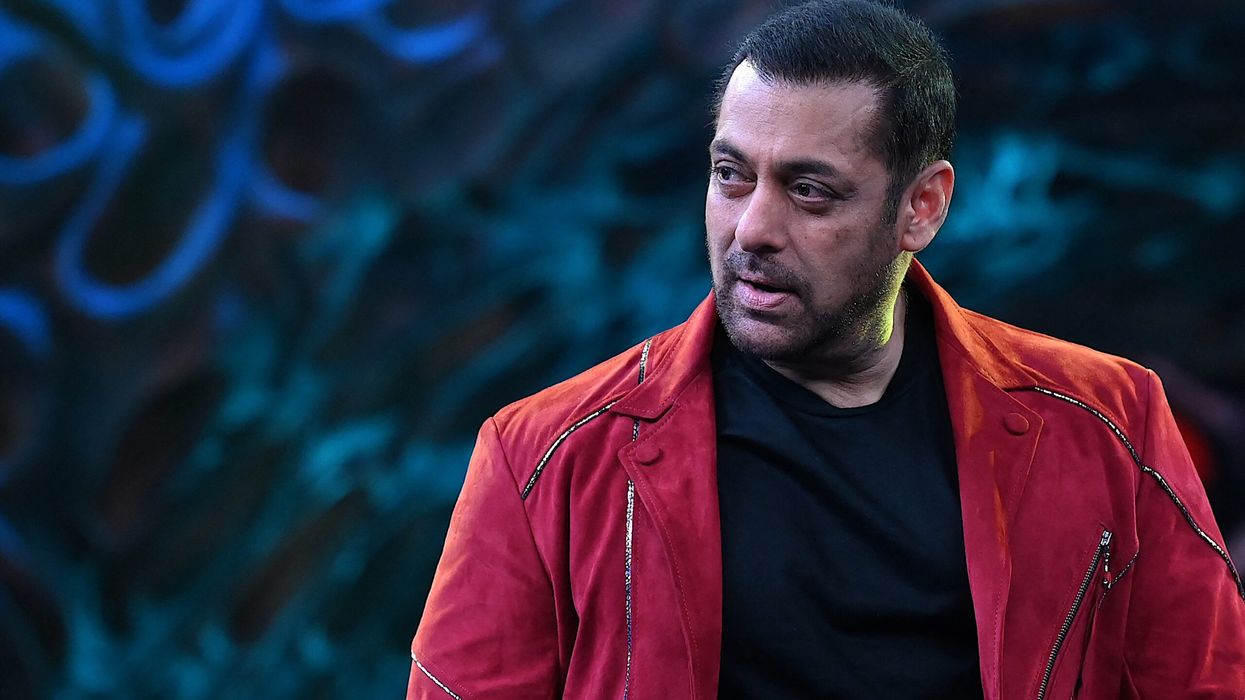Salman Khan is one of the most popular and talented actors in Bollywood. He has dominated the box office for decades with countless successes. Khan began his career in 1988 with Biwi Ho Toh Aisi, and later he gave several hits including Maine Pyar Kiya, Hum Aapke Hain Koun, Hum Saath Saath Hain, Karan Arjun, Dabangg, Bodyguard, Ek Tha Tiger, Bajrangi Bhaijaan, among others.
As the Bollywood superstar celebrates his 58th birthday today December 27, let us look at some of his best films.
Hum Aapke Hain Koun (1994)
This musical romantic drama film was written and directed by Sooraj Barjatya. Salman Khan as Prem consistently receives special recognition for a tale that has stood the test of time and is still regarded as a favourite among lovers of Hindi cinema. Salman, who starred alongside Madhuri Dixit in the film, was endearing as usual, bringing his quirky touches to everything he did.
Andaz Apna Apna (1994)
Andaz Apna Apna, a cult comedy that was ahead of its time, is still a fan favourite. The film has characters who are still famous and are recreated in costume parties and Bollywood evenings, and it is a testimonial to the eccentricities of his personality that his followers adore.
Hum Dil De Chuke Sanam (1999)
Hum Dil De Chuke Sanam was a classic because Salman as Sameer presented a very strong argument for the love narrative, which was so sophisticated for its period. Salman performed in roles with different cast ensembles, something that most celebrities would have avoided at the time. And in doing so, amassed a devoted following.
Tiger Zinda Hai (2017)
It is among Salman Khan's highest-grossing films. Ali Abbas Zafar is the director of the film. It is based on a story by Zafar and Neelesh Misra and produced by Aditya Chopra under Yash Raj Films. The film is a sequel to Ek Tha Tiger (2012) and is the second installment in the YRF Spy Universe. The feature stars Salman Khan and Katrina Kaif. Like its predecessor, the movie broke several box office records while it was in theatres.
Bodyguard (2011)
Another well-received Salman Khan movie! As the romantic-action movie continued, Salman Khan's character, Bodyguard Lovely Singh, and the girl he is paid to protect (Kareena Kapoor) developed a blossoming romance. The movie was an enormous hit and is still quite popular.
Dabangg (2010)
Dabangg, widely recognised as his comeback movie, is one of Salman Khan's masterpieces that people continue to talk about because of its comedy, music, and action scenes. Salman Khan portrayed a police officer in the movie, which was so well received that the producers decided to create two more.
Sultan (2016)
Sultan made waves in 2016 both at the box office and in people's hearts. Salman portrayed a wrestler in the movie who makes a return in his 40s, and his love story is paralleled by the plot.
Bajrangi Bhaijaan (2015)
Released in 2015, this movie continues to be many fans' favourite Salman Khan film! The film saw Salman in a completely different role and had just the perfect mix of action, emotions, and a heartwarming storyline. It was a box-office blockbuster.
Kick (2014)
One of Salman Khan's best films, Kick is directed by Sajid Nadiadwala. Salman Khan, Nawazuddin Siddiqui, Jacqueline Fernandez, and Randeep Hooda are among the actors who star in it. The film received a positive response and turned out to be a blockbuster film of its time.
Tiger 3(2023)
Tiger 3 is the third installment of the Tiger franchise and a part of the YRF Spy Universe with the likes of War and Pathaan. The movie also has cameo appearances of Shah Rukh Khan and a post-credit scene featuring Hrithik Roshan. Just like the two previous installments - Ek Tha Tiger and Tiger Zinda Hai -, the film focuses on a new mission involving RA&W agent Tiger (Salman) and ISI agent Zoya (Katrina Kaif). Tiger 3 is among the highest-grossing films of 2023.




